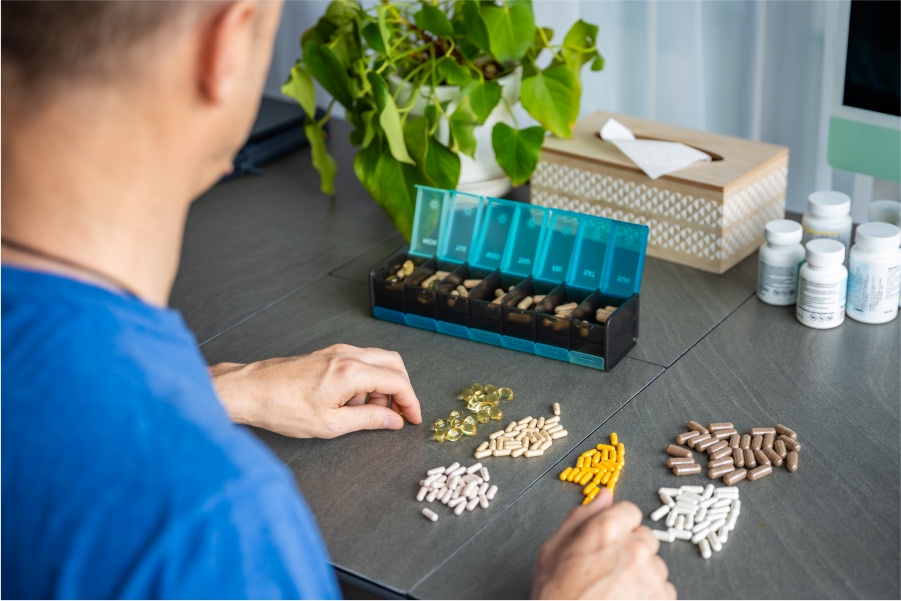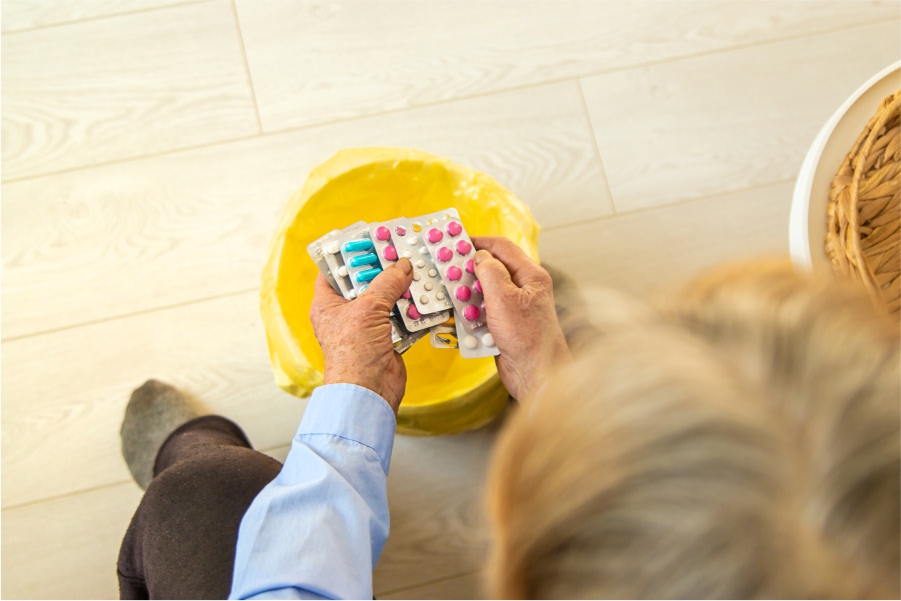Safe Medications, Safe Homes: Why Medication Safety Matters for Seniors Aging in Place
Aging in Place: A Shared Goal
Most older adults want the same thing: to stay in their own homes as long as possible. Home provides comfort, independence, and dignity. But one of the biggest obstacles to successful aging at home isn’t just mobility or finances — it’s medication safety.
With many seniors managing multiple prescriptions, the risk of medication-related accidents, hospital visits, or even long-term care placement grows if safety is not carefully managed.
The Risks of Unsafe Medication Use
- Mix-ups and missed doses: Taking the wrong pill or missing a dose can cause serious health setbacks.
- Interactions between drugs: Many seniors take prescriptions from multiple doctors, increasing the chance of harmful drug interactions.
- Side effects leading to falls: Medications that cause dizziness, drowsiness, or confusion are a leading cause of preventable falls.
- Overuse or underuse: Some medications are stopped too early, while others are continued longer than necessary, putting health at risk.
Why Medication Safety Helps Seniors Stay at Home
When medications are managed safely, older adults are healthier, more stable, and less likely to need hospital care or assisted living. Benefits include:
- Better control of chronic conditions like high blood pressure or diabetes.
- Fewer emergency room visits caused by preventable drug issues.
- Stronger independence as seniors can confidently manage their own health.
- Peace of mind for families who worry about loved ones taking the right medicines at the right times.
Practical Tips for Safer Medication Use
- Organize with tools: Use pill organizers, blister packs, or labeled containers to reduce confusion. Utilize a local pharmacy who may be able to package your medicines into convenient calendar packs!
- Simplify routines: Ask your doctor if prescriptions can be adjusted to fewer daily doses.
- Set reminders: Phone alarms, watches, or smart dispensers can help prevent missed or doubled doses.
- Schedule regular reviews: Your local pharmacist can check for duplicate prescriptions, interactions, or medications that may no longer be needed.
- Keep an updated list: Always have a current list of medications to share with every healthcare provider.

The Role of Family and Community
Medication safety is not something seniors should face alone. Families, caregivers, pharmacists, and community health programs all play a part in creating safe systems at home. Local senior centers, pharmacies, and home health services often provide free resources to help.
Final Thought
Medication safety is more than just remembering to take pills — it’s the foundation of staying healthy, confident, and independent at home. With the right support, older adults can avoid preventable health crises and continue living where they feel most comfortable: in their own homes.


